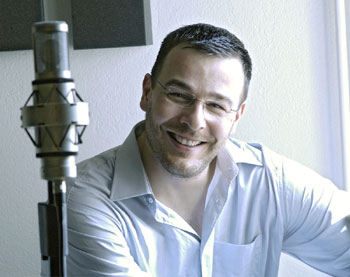Understated yet charming
Countertenor Andreas Scholl, lauded on world stages for purity of sound and expressive core, came to UC Berkeley’s Zellerbach Auditorium April 26, backed by the 22-member Australian Chamber Orchestra.
It was a mutual alliance between a group that brings modernity and energy to period works and a present-day countertenor who has been likened to Senesino, the castrato Händel wrote for.
The Australians were led with verve by violinist Richard Tognetti. They stood as they played, except for the cellos and harpsichordist Neal Peres da Costa, whose back graced the audience to better blend the metallic chime of plucked string with the sonority of bowed.
The concert opened with Joseph Haydn’s Symphony No. 44 in E Minor, a departure from classicism that laid the groundwork for the rise of romanticism. Composed long before these labels, it was simply revolutionary music that drew on the blend of baroque power and classical proportion Haydn was famous for and re-cast these in the minor with a freedom and impetuosity later termed Sturm und Drang.
In the Allegro he pairs the sweetness of high violins with French horn for a delicate melancholy. Then a gentle minuet, slower  than usual, cleansed our palette before the moving Adagio, which he asked to be played for his funeral. The slow intensity left us holding our breath. Each instrument contributed to keeping the sound spare, with lean numbers, near-telepathy and attention to the arch of the line.
than usual, cleansed our palette before the moving Adagio, which he asked to be played for his funeral. The slow intensity left us holding our breath. Each instrument contributed to keeping the sound spare, with lean numbers, near-telepathy and attention to the arch of the line.
Rough-scrubbed strings and relentless 16ths gave the Finale a fullness belied by the small ensemble.
Moving 240 years forward, the musicians performed the U.S. premiere of Roger Smalley’s Footwork. They brought the precision of Haydn’s day to the visceral dance-steps of Argentina in a piece that pays homage to tango. The high tessitura, abrupt up-bows, and Milonga cross-rhythms bring Piazzolla to mind, though Smalley’s gentler textures are less extreme, shifting macho prowess to sensuality.
Andreas Scholl took the stage to sing six arias from operas by Georg Friederich Händel. Long a mainstay at the Metropolitan Opera, Scholl was surprisingly subdued. Like Sherlock Holmes’ “curious incident of the dog in the night-time,” Scholl was more soto than voce, a mystery to those who have heard him fill mighty halls with warmth and emotion.
I later played CD selections of Scholl to remind myself that he is one of the greatest countertenors of our generation, with huge plaudits justly earned.
Even in this understated performance one could hear breath control a pearl diver would envy. “Dove sei, amato bene?” from Rodelinda was slow and sumptuous, with̀ a gorgeous long-held note at the end. And in “Oh Lord, Whose Mercies Numberless,” from the opera Saul, Scholl’s slow arpeggios were so dead-on pitch and effortless that they floated us into a dreamier realm. Without adornment or vibrato, longer notes hung exquisitely bare in the air.
The Chamber Orchestra accompaniment was heartfelt, and in “Aure, deh, per pietà,” from Giulio Cesare, limpid violin notes seemed drawn from wine-soaked wood.
They closed the concert with Pavel Haas’ 1925 work From the Monkey Mountains Suite, a dense piece with great viola writing. Passages from Rhapsody in Blue emerged between darker strains influenced by his teacher, Leos̆ Janáček.
—Adam Broner
Originally published in the Piedmont Post
